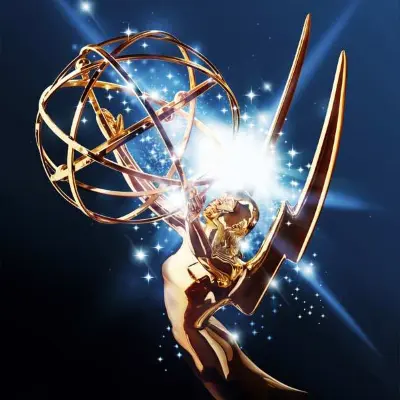Primetime Emmys' all-white major acting winners was at odds with its diverse lineup of presenters
-

Last night, all 12 major acting prizes went to white actors, prompting the creation of the #EmmysSoWhite Twitter hashtag. The white actor sweep was the result of Emmy voters favoring familiarity and caution, particularly with Ted Lasso and The Crown. "The lack of surprises and the academy’s aversion to more risky choices meant that the Emmys took a step back when it came to racial diversity," says Lorraine Ali. "No performers of color won in any of the comedy, drama or limited series categories despite some of the strongest contenders in years. And it was nearly two hours into the show when the first person of color stepped onstage to receive an award. RuPaul made Emmy history for the most Emmys won by a person of color when RuPaul’s Drag Race landed the outstanding competition series honor for the fourth consecutive year." Ali adds: "The lack of Black, Latinx and Asian winners was at odds with the lineup of the night’s presenters, who without the awards painted a picture of a diversified Hollywood. Taraji P. Henson, Kerry Washington, Angela Bassett, Mindy Kaling and Ken Jeong were among more than a dozen people of color who opened envelopes and called out winners’ names. The ceremony opened with a tribute to the late rapper Biz Markie, who died this year, and music by Run DMC and the Notorious B.I.G. was spun by DJ Reggie Watts as presenters walked on and off camera, and as the show went to commercials. Poor Patrick Stewart looked confused. The race questions the Emmys inevitably stirred detracted from what was another groundbreaking year for women in television. When Jessica Hobbs of The Crown and Lucia Aniello of Hacks won, they became the first women to sweep both the comedy and drama directing categories."
ALSO:
- You have to be ignorant to think white people winning all the major acting awards is a coincidence: "You could make an argument for the people who won, that they are talented and deserving," says Linda Holmes. "These are good shows, mostly. The issue is that in many categories, everyone is talented and deserving, and in many more, at least multiple people are. Even if you believe The Crown is a worthy and good show, that doesn't mean Pose isn't, or Lovecraft Country isn't, or any of the many things that weren't even nominated aren't. It's not a matter of undeserving nominees being honored, necessarily; it's often that out of a whole world of deserving artists, the recognition over and over again leaves out artists of color, indigenous artists, trans artists, disabled artists, and on and on. To continue to press the narrative that this is a coincidence requires more and more closing of one's eyes to reality. The entire idea that there exists a correct single deserving winner is always deeply silly, so there are other factors at work. Who gets the benefit of an Emmy campaign, who knows a lot of people, who's well-liked, who's been in other things that have won awards, whether voters actually watched the show at hand — and, always, what story the industry is currently telling about itself. And the story that television told about itself this year at the Emmys was discouraging, narrow, and dated, even as they honored a lot of good work. That's the paradox of more good television making less satisfying celebrations: the more good stuff you could choose to reward, the more striking your peculiar fixations and omissions become."
- If there were an Emmy award for irony, Sunday night’s ceremony would be the clear winner after having its most diverse nominee field ever
TOPICS: 73rd Primetime Emmy Awards, CBS, Award Shows, Diversity, Emmys, Television Academy
More 73rd Primetime Emmy Awards on Primetimer:
